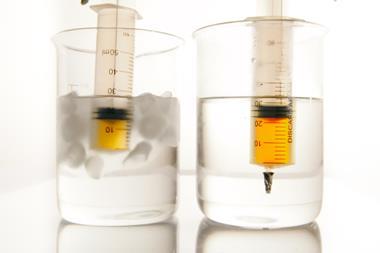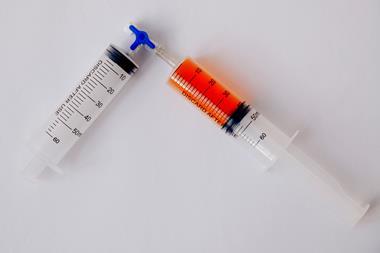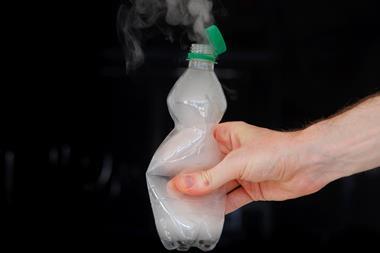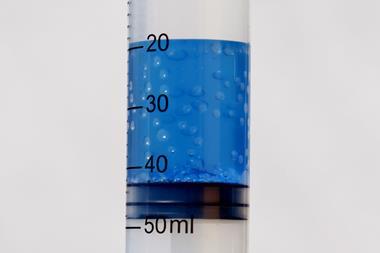-

- Salary range: £25–40k
- Minimum qualifications: Degree-level qualifications (including master’s)
Undergraduate degree studied at: University of Kent - Skills required: Technical, communication, team working and problem solving.
- Training required: Equivalent experience helped me get my current role.
- Work–life balance: I’m always looking at doing something to progress and develop skills, whether that’s a course or some sort of training.
- Career progression: You can progress in a few different avenues, such as professional registration, taking a new qualification or applying for a more senior position.
- Locations: Find related work experience positions using our map of employers.
 -->
-->
More profiles like Gary's
What does a quality officer at the Wellcome Sanger Institute do?
The Wellcome Sanger Institute is a world-leading genome research organisation. We make DNA libraries out of samples we receive from scientific research programmes. We sequence these libraries and send the sequencing data back to the research programmes for analysis. This helps scientists to spot trends and make breakthroughs using genomic data.
My quality officer role connects science exploration with the standards of quality assurance. I’m mainly responsible for the development, implementation and improvement of quality assurance processes, such as issue management. If something goes wrong – for example, a reagent has been loaded incorrectly onto a robot – that issue needs to be investigated and an action needs to be put in place to prevent that issue from reoccurring. The action might be as simple as providing guidance and training on the process that went wrong – in this example, training on how to correctly load a reagent. This is where I step in, to ensure that all the procedures are clear and followed to the highest standards.
How does your job affect the world around us?
The work that I do impacts and contributes to the advancement of scientific knowledge and breakthroughs. The Wellcome Sanger Institute are world leaders in cutting-edge genomic research and I help make sure the research programmes work with high-quality data so that they can spot trends and discover findings that progress science. For example, we were sequencing many Covid samples during the pandemic and the data we produced contributed to experts spotting variants and developing the vaccine.
What’s your typical day like?
There isn’t really a typical day. One day, I could be delivering a training workshop to 30, 40 or 50 lab staff. The next day, I could be sat at my desk analysing data and highlighting trends to drive improvements. I also use tools such as Google Sheets and Tableau to visualise data to spot where we might need to improve things. I enjoy improving processes, for example – I recently wrote some code so that when an issue was raised, it would automatically create an investigation form and save it on the network rather than the information being entered manually.
How did you find your job?
Most of my career has been in the lab. Originally, I left school aged 18 and started as an apprentice at Anglian Water on a level two apprenticeship as a lab scientist. I worked in the lab and progressed through the lab for about eight years doing various different roles such as lab analyst and then team coordinator. After this, I moved on to a different kind of role which was supporting the implementation of a Laboratory Information Management System (LIMS), which is a software for tracking/managing samples and seeing their results. I did this for about a year, then applied for a few other roles. Shortly after this, someone I knew at Sanger reached out to me about a position, which I applied for and was successful.
How did your qualification help you to get your role?
I didn’t actually have the degree qualification when I got the role as I was still working towards it but I think the Registered Science Technician (RSciTech) award stood out on my CV at the time. Now, I’m a Registered Scientist (RSci), so I’ve upgraded since I got here. I guess my equivalent experience helped me get my current role, having previously worked in a quality-regulated environment.
What do you love about your job?
I enjoy the variety and I’ve always had an interest in innovating tasks that are not very streamlined. If I can make a task easier or more efficient, then it’s going to help everyone else out. They’re going to be happier and that makes me happy if I’m helping them in their role and subsequently contributing to better quality data.
Why did you choose chemistry originally?
Science has always interested me – I have always been interested by the way things work. Chemistry was fun and very interactive at school. When I did experiments, it didn’t really feel like work because I was doing interesting things rather than reading from a book. I learn by doing rather than reading.
What keeps you motivated?
I’ve been able to help other people in their journeys and I like seeing people go through a period of development and coming out the other side as an improved version of themselves – they’re motivated to do more and interacting with them keeps me motivated. I’m always looking at doing something to progress and develop skills, whether that’s a course or some sort of training. This comes with professional registration as you are set up to do professional development for your entire career. I guess I’m always keeping myself alert to development opportunities and that keeps me motivated and the progression I’ve seen from lab analyst to now, as well as apprentice to now, is evidence that my motivation is justified.
What barriers did you encounter on your journey into your role?
I guess the barriers came in when I started wanting to apply for roles that required a degree when I didn’t have one at the time. However, I largely think that a lot of the barriers were overcame based on experience that I’d gained from the apprenticeships that I did.
What tips or advice would you have for someone looking to get into a similar role or considering a career in chemistry?
I’ve done three apprenticeships: an intermediate apprenticeship, advanced apprenticeship and degree apprenticeship. For me, the apprenticeships have offered the perfect balance of getting experience in an industry and building up an understanding of scientific theory. In industry, experience is invaluable and, if you’re doing an apprenticeship, you get work experience and a qualification at the same time. The experience that I gathered while working was critical for each role that I applied for.
What do you see yourself doing in the future?
I just take opportunities when they come up. I’m always looking to progress. You can progress in a few different avenues, such as professional registration, taking a new qualification or applying for a more senior position. For example, I could work towards Charted Scientist, do a master’s or move into senior management.
Want to find out more?
- Explore your study options, talk to a career adviser and look into gaining work experience.
- Find out more about apprenticeships.
- Browse the Chartered Quality Institute for information about quality.
- Explore more jobs on Not Just Labcoats.
Gary RSci, Quality Officer at the Wellcome Sanger Institute
Published January 2024
























